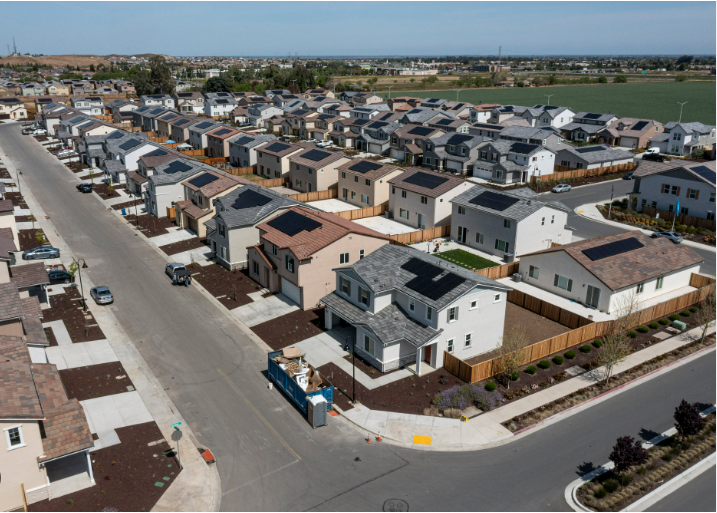Should You Move Out of State to Find Affordable Housing?

Want to live in a big city? You’re going to need a big budget. Housing affordability is a challenge everywhere, but the higher prices in large metro areas make it even tougher. Many hopeful homebuyers who can’t afford their preferred city are looking elsewhere for more affordable housing markets, even if it means moving out of the metro area or state.
Instead of prioritizing a quick commute, some buyers — especially those with hybrid or remote jobs — are willing to accept a longer trip to the office in exchange for affordable housing.
How far are you willing to move to be able to afford a home?
Regions with significant employment hubs, like the San Francisco Bay Area and New York City, often have very high housing prices. But what if you didn’t have to go into the office every day? A long commute becomes much more manageable when it’s only occasional.
In many parts of the country, homebuyers who work from home or only go in periodically are extending the radius of their home searches. Jason Moon, managing broker at Trueblood Real Estate in northwest Indiana, has seen this trend firsthand. He recently helped a couple, both employed by Chicago-based companies, relocate to St. John, Indiana. Despite the 90-minute-or-longer commute to downtown Chicago, the move was beneficial.
“She doesn’t have to go into a physical office, and he spends most of his day on Zoom calls,” Moon says. “They sold their condo in the heart of the city and bought a nice house. Their expenses went down exponentially.”
In addition to enjoying lower long-term costs, Moon points out that buyers who trade downtown Chicago for northwest Indiana get a “pleasant surprise” with their closing costs. “We don’t typically use attorneys on transactions in Indiana, and we don’t have transfer taxes,” he says. “That can add up to thousands of dollars.”
The big-city parking struggle is also less problematic when it’s not every day. “If they only have to go into the office one day a week, they don’t mind driving in and paying $50 to park,” Moon adds.
Rising home prices
In October 2023, 32 percent of respondents believed they would never be able to afford their dream home. While everyone’s dream home varies, it’s easy to understand their concerns: home prices continue to rise.
The U.S. median home price in January 2024 was $379,100, the highest January price ever recorded by the National Association of Realtors. Experts don’t foresee prices dropping anytime soon.
With mortgage rates hovering around 7 percent, buyers’ purchasing power is diminished, making home affordability even more challenging.
Gen Z and millennials struggle the most

The home affordability issue is especially tough on young, first-time homebuyers. Renters don’t have the proceeds from a previous home sale to help fund a new purchase, and even if they’ve received a pay raise, inflation often limits what they can do with that extra income.
When Jason Moon first started his real estate career, most people moving to Indiana from Chicago were retirees and empty nesters. However, he’s recently seen a significant shift, with buyers closer to 30 years old now making the move.
“Since the pandemic, we’ve had a lot more young buyers saying they want to live in Indiana,” Moon says. Many young families are drawn by the public schools and the appeal of lower taxes. According to Moon, some buyers pay a fraction of the annual tax obligation in Indiana compared to Illinois.
Considerations for super-commuters
Before you start searching for homes far from your current location in your quest to become a homeowner, consider these key questions:
- How often will you commute? A two- or three-hour commute once a week might give you some extra time to think, but doing it five days a week could be overwhelming. Consider your employer’s expectations for your office presence and whether the savings on housing costs will outweigh the commuting expenses, including gas, parking, and car maintenance.
- What are the public transportation options? Is it feasible to take a train or bus instead of driving? If so, calculate the cost and travel time for these options.
- Will your employer be OK with it? If you’re young and aiming to advance in your company, face time might be crucial. Discuss your plans with your boss, especially if you plan to adjust your hours to avoid traffic. Also, check with HR, as some companies can only employ residents of certain states.
- What about your friends and family? Moving out of state means you’ll likely be farther from friends and loved ones. Consider whether you’re willing to put in the effort to maintain these relationships.
- Do you have the right real estate agent? If you’re moving to a new area, you may not be familiar with the best neighborhoods or towns. An experienced local agent can help you find a home and lifestyle that fit your needs.
Remember that buying outside the big city still requires substantial cash and commitment, despite the potential upfront savings and lower cost of living. “Homeownership is a key pathway to wealth,” says Hamrick. “But getting the keys is just the first step on the financial journey of homeownership. The longer one owns a home, the more they will encounter unexpected expenses, such as replacing a roof or an HVAC unit.” You might save money initially, but don’t forget to keep saving for future expenses.
